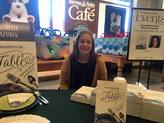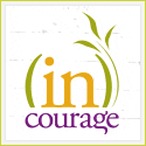|
“Do you like Nirvana?” My friend’s sudden question snapped me out of my daydream. An hour-long bus ride home from school tended to make me oblivious to everything around me. “What do you mean?” I asked, confused. She handed me a cassette of a new group. Curious, I popped in the tape and listened intently, the knobs in the clear cassette player turned, churning out note after glorious note. Something happened that day that I’ve never forgotten. I fell in love. My friend changed my life in that instant. Kurt Cobain spoke to all the feelings of loneliness, depression, and inner angst I had wrestled with for many years. I discovered a piece of myself that day through the gift of music. As I explored this new genre of alternative music, I tested out other bands in my cassette player. Bands like Pearl Jam, Nine Inch Nails, and Primus screeched out their musical harmonies along with enough guitar reverb to shake my bedroom walls. They also awakened my soul. When I listened to them, I felt alive. The words and music resonated with me and helped me get in touch with feelings that lay deep within me. Nirvana didn’t just change the way I listened to music; everything else changed too. I soon found myself walking down the hall decked out in Converse shoes and red plaid flannel shirts—identical to what my friends wore. Soon I was not myself anymore. I found myself belonging to something bigger than just the music—a whole way of life. Because I liked the same music as my friends, they soon invited me to parties and to sit with them at lunch. Soon I wanted to do what they were doing and go where they wanted to go. Nirvana wasn’t just any band. They changed the face and future of music. Not only did it open me up to a new genre of music that allowed me to express all of the angst I held inside, but my self-concept changed as a result. Even though I didn’t like the grunge look that the new bands made popular, I wore it anyway because by changing the way I looked on the outside, I gained a wealth of new friends and opportunities for social interaction. But I lost myself in the process. That same year, I began dating my first boyfriend. Five months of puppy love turned sour one day as I got the dreaded phone call: “I think we should break up.” My self-image crumbled, leaving me a big lump of insecurity. I wondered if I was worthy of love and if I would ever love again. That insecurity turned into crippling fear, which turned into full-blown panic attacks and bouts of depression. At the age of 16, I was a mess. In my senior year, all of that changed. Questioning the role of God in my life and struggling with why I was put here on earth culminated in a one-time event where I got real with Him. I prayed that He would reveal Himself to me in a way radically different than anything I had experienced. When I finished praying, something was different. Although I didn’t feel different, I began to see things around me differently. I didn’t worry so much about what others thought of me. I regained my confidence and saw myself again as a beautiful young woman of God. I learned to love myself again. I stopped worrying about what others thought of me and began to focus on how God saw me. I was forever changed. Because I was learning to love myself, I loved others too. It took time, but I began to see myself as God saw me: unconditionally loved and accepted. Loving and accepting yourself is at the heart of your relationship with God. Through understanding God’s approval of you, you can discover your purpose, not only in the church, but also in the world.
1 Comment
|
Where I'm featuredWhere I am a member
Click to set custom HTML
Archives
March 2024
Categories |








 RSS Feed
RSS Feed